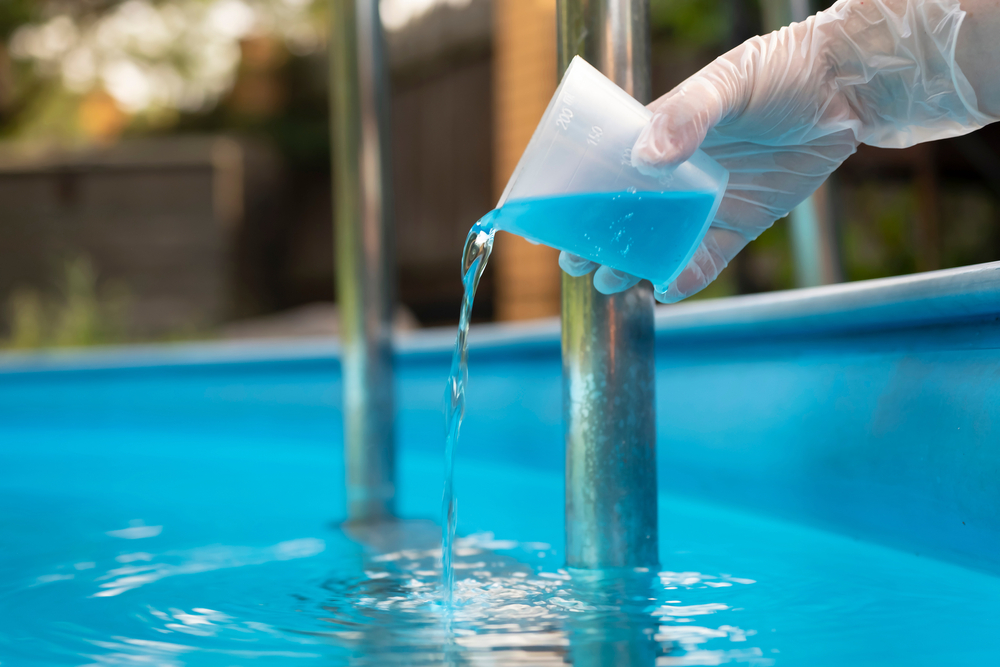

Maintaining a sparkling and inviting pool doesn’t have to come at the cost of using excessive chemicals. As a pool owner, you might know the importance of water chemistry for a safe and enjoyable swimming experience.
But what if we told you there are ways to achieve a well-balanced pool without relying heavily on chemicals?
In this article, we’ll explore some practical strategies to minimize the use of chemicals in your pool, ensuring a healthy environment and a refreshing swim.
1. Regular Skimming and Cleaning
Prevention is the first step toward reducing your reliance on chemicals. Regularly skim the surface of your pool to remove debris like leaves, twigs, and insects.
Debris not only affects the water quality but also provides a breeding ground for bacteria and algae, leading to the need for more chemical treatment. Additionally, vacuum and brush the pool walls and floor to minimize organic matter buildup.
2. Optimize Filtration
Your pool’s filtration system is crucial in maintaining water clarity and cleanliness. Ensure your filter is clean and functioning optimally. Consider running the filtration system for longer periods during peak swimming times.
Efficient Filtration reduces the load on chemicals by removing contaminants before they have a chance to multiply.
3. Proper Water Circulation
Good water circulation helps distribute chemicals evenly and prevents dead spots where contaminants can accumulate.
Run your pool pump and jets regularly to maintain consistent circulation. This ensures that all areas of your pool receive the benefits of chemical treatment, minimizing the need for excess chemicals.
4. pH and Alkalinity Balance
Maintaining proper pH and alkalinity levels is essential for water balance. When these levels are within the recommended range, the effectiveness of sanitizers (like chlorine) increases, meaning you can use less.
Regularly test and adjust pH and alkalinity to ensure optimal conditions for your pool’s water chemistry.
5. Use Natural Alternatives
Consider incorporating natural alternatives to traditional pool chemicals. For instance, using a mineral sanitizer system can reduce the reliance on chlorine or bromine.
These systems release small amounts of minerals like copper and silver into the water, effectively controlling bacteria and algae growth. While you may still need some chlorine, the usage will be significantly reduced.
6. Shock Only When Necessary
Shocking your pool with a high dose of chlorine or non-chlorine shock treatment is sometimes necessary to eliminate bacteria and organic contaminants.
However, excessive shocking can lead to unnecessary chemical use. Only shock your pool when water testing indicates a need, such as after heavy pool usage or heavy rain.
7. Regular Water Testing
Consistent water testing is critical to understanding your pool’s needs. Test your pool water regularly to monitor pH, alkalinity, sanitizer levels, and other parameters.
With accurate information, you can make precise chemical adjustments, preventing overuse.
8. Maintain Proper Water Level
Maintaining the proper water level is crucial for efficient chemical distribution. The chemicals may become concentrated and lose effectiveness if the water level is too low. If it’s too high, the chemicals may become diluted. Keep your pool water at the recommended level to ensure optimal chemical performance.
If you liked this blog, check out this one on, “Should You Heat Your Pool Overnight?”